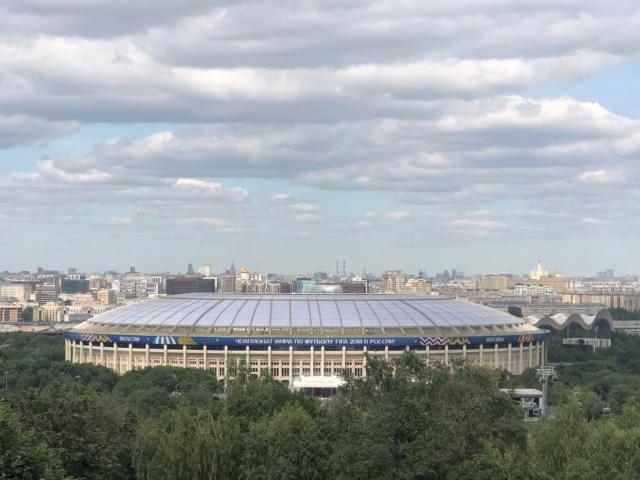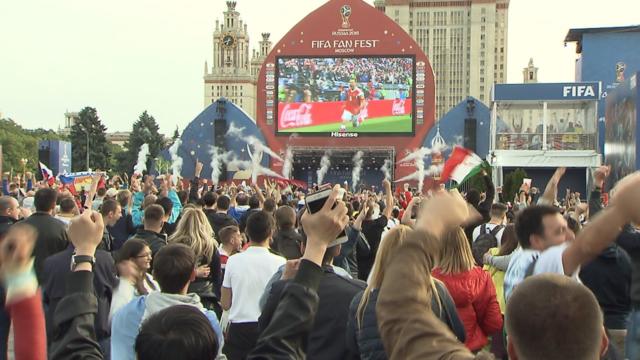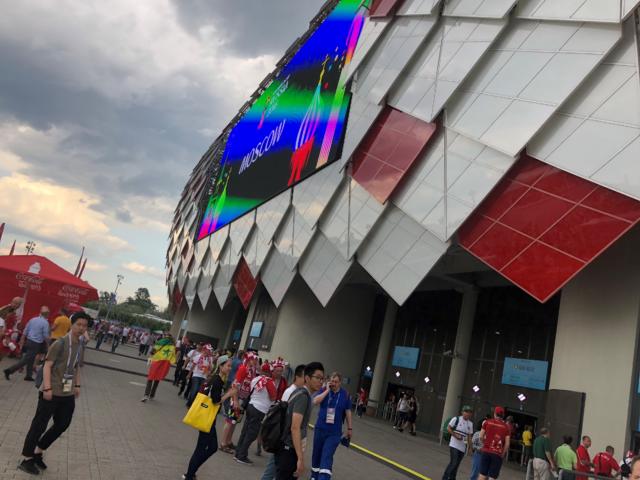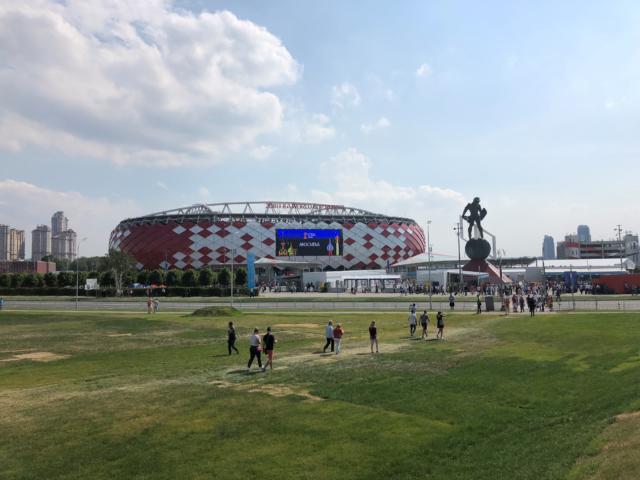The 2018 Russia World Cup is in full swing, but once the final kick has been taken, what will the legacy of the tournament be for the people? Russian authorities hope it will have a long-term impact, boosting trade and tourism, but some economists are less convinced.
The World Cup is expected to cost Russia around $10.7 billion, although some analysts believe that figure is closer to $14 billion, making it the most expensive World Cup ever.
Aleksey Sorokin, the Chief Executive of the Local Organizing Committee says it’s worth it.
“We did not build anything we did not need. Everything that was built would have been built anyway. The World Cup is just the catalyst for that. Every piece of infrastructure. All the terminals, airfields, roads, railroad stations etc., this is something that will serve our citizens for a long time. And now Russian football will be boosted buy a lot of new pitches and new stadiums.”
But a report by credit rating agency Moody’s claims the World Cup will only have short-term economic impact.
Russia devoted more than $2.8 billion towards building and overhauling 12 stadiums in 11 cities.
But previous hosts have struggled to maintain such gigantic sporting arenas and it raises the question as to whether some of that money could have been better spent.
A 90 minute drive from Moscow lies the town of Zvenigorod. The town has little in the way of World Cup sparkle.
Youngsters from the Kavalergard football school play a football match. But their coach, Lukyanov Alexandrovich tells me they get little financial support and it is a struggle to maintain what they have.
“I really want there to be more financing particularly in children’s football. This is where the major problems lie. We need to have more good quality coaches, having more seminars for those coaches to make them better. But all this unfortunately has to do with financing.”
Russia began the World Cup as the lowest ranked team but surprised many by progressing to the knockout stages.
But Sorokin believes, if nothing else, hosting the tournament has many long term gains.
“It will solidify our confidence, our belief in ourselves and our team. We have shown the world that we can organize a huge planetary event. We have shown the world our hospitality. If most of our guests go back with a great impression, and wish to go back to Russia, we will feel that our task is fulfilled.”
Whether the World Cup will have quite the impact on the country as claimed is unclear. The sums may not add up, but images of tourists enjoying themselves in the eleven host cities, can only serve to bolster the image of Russia across the globe.



 CGTN America
CGTN America

